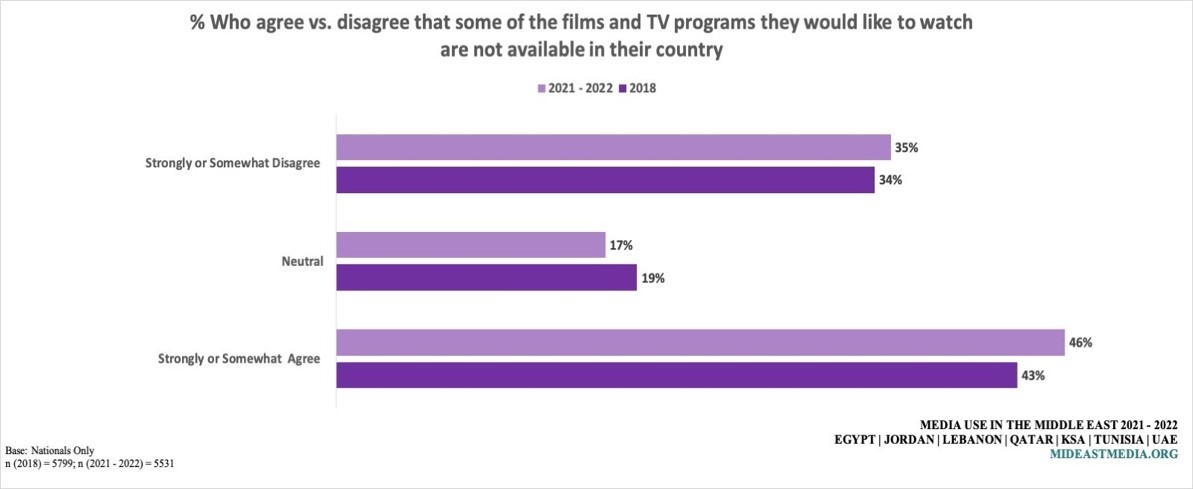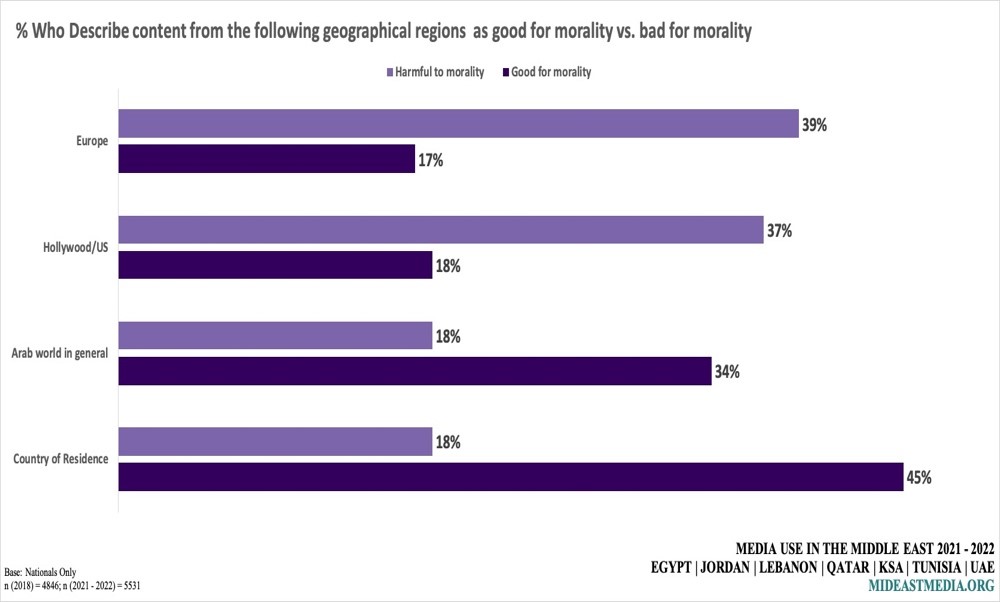Following our methodological approach of focusing on entertainment on odd years, this year’s surveys results highlight trends on attitudes towards, and consumer choices on, the media of the Arab region. Perhaps one of the most significant results that we observed, when we looked at the cultural attitudes of the surveyed participants, was the emergence of social media influencers as a major force in shaping consumer choices on entertainment
Figure 1: Influence on entertainment media choices over the years

Social media influence was cited by most nationals in the region, 51%, as important in their choices of entertainment media. This lead follows a continues increase since 2014, despite the recent slight drop (55% in 2018 vs. 51% in 2021-2022). On the other hand, advertisements, which used to rein as most important for the majority of nationals’ choices of media in the last three iterations of the study, has witnessed a steep since 2018 (55% in 2018 vs. 36% in 2021-2022).
Figure 2: Attitudes of country’s progress over the years

Since 2017, the wide divide between nationals who perceive that their respective countries are headed in the right vs. wrong direction, we note a general disillusionment in the region with more nationals perceiving that their countries are headed in the wrong direction than those satisfied with their countries’ progress since 2018. In the latest iteration of the study and similarly to 2019, nationals have reported a divide in assessing country’s progress with almost half (46%) saying their countries are headed in the wrong direction and 44% saying their countries are headed in the right direction.
Figure 3: Preference for media based on culture and history over the years

Nationals have expressed a strong preference for cultural portrayal in entertainment media, with more nationals (74%) preferring to watch films that portray their culture and a strong majority (70%) somewhat or strongly agree that media should be based on their culture and history despite the slight increase in percentage of those who disagree (12%).
Figure 4: Media availability in Arabic

Despite their strong preference for media based on their culture and history, nationals in the region are still seeking content from outside their countries. nearly half of nationals in the region (46%) say that the films and tv shows they would like to watch are not available in their country, and over a half (51%) say the entertainment media, they would like to watch is not available in Arabic.
Figure 5: Media availability in country of residence

Figure 6: Impact of entertainment media from different geographical locations on morality

Nationals of the region have noted a sense of preference for local and regional entertainment media content’s influence on morality over that of European and American media. Entertainment media from countries of residence and the Arab world in general are perceived as good for morality despite the decrease since 2018 (53% in 2018 vs. 45% in 2021-2022 nationals perceived media from countries of residence as good for morality and 45% in 2018 vs. 34% in 2021-2022 nationals said that media Arab world outside the country of residence is good for morality). Entertainment media originating from Europe and the US continue to be perceived as harmful for morality (39% nationals perceive European media as harmful for morality and 37% perceive American media as harmful for morality)